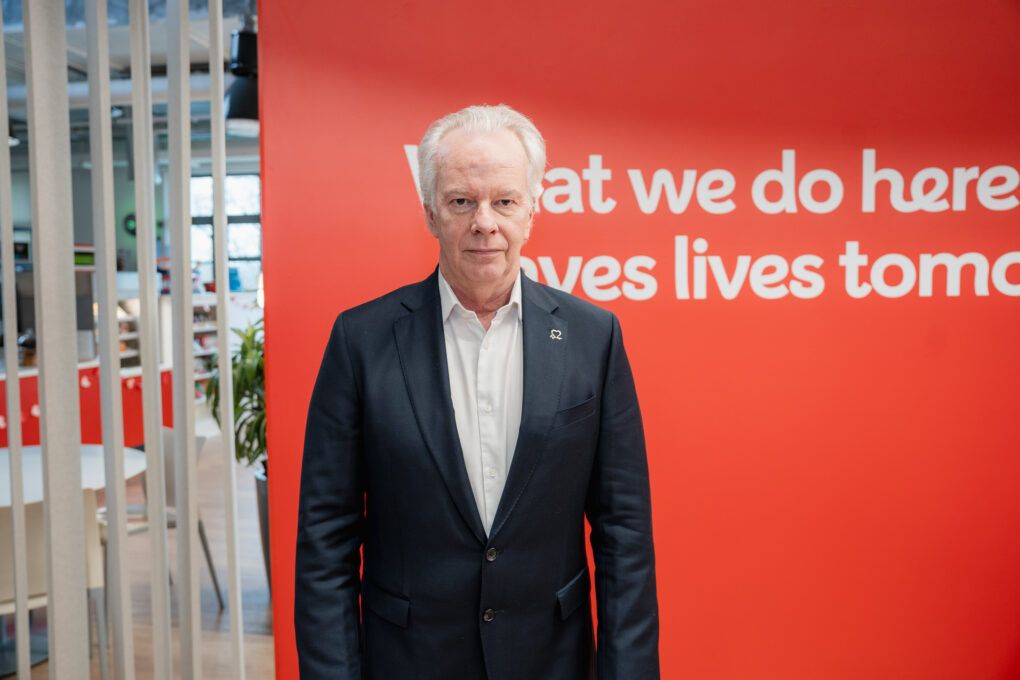Over 150 health researchers tune in for first of five Our Future Health webinars

Now that Our Future Health is open for study applications, we want researchers from a broad range of fields to understand the benefits our resource can bring to their work.
After all, our data represents the largest in the UK. We believe it can herald new insights for discovery biologists, clinical researchers, social scientists, population health and policy researchers – and many more. If your work is about discovering and testing new ways to prevent, detect and treat diseases, Our Future Health can help.
That’s why we’re running a series of webinars for the research community, designed to convey the full potential of our data.
The first webinar was held earlier this month, in conjunction with the British Heart Foundation (BHF), one of our funding charity partners. More than 150 health researchers logged on to find out how our data can help them discover new ways to prevent, detect and treat diseases.
Want to attend a webinar? Email partnerevents@ourfuturehealth.org.uk to register your interest.
An unparalleled resource

The webinar was introduced by Professor James Leiper, Director of Research at the BHF. It also featured presentations by Dr Fiona Reddington, Executive Director of Strategic Partnerships at Our Future Health, Dr Michael Cook, our Executive Director of Science, and Kate Evans, our Executive Director of Researcher Data and Product.
“When Our Future Health first approached us to sound us out if we wanted to get involved, we were just blown away by their ambition,” said James. “The goal? To recruit 5 million people into the cohort – that’s about 10% of the adult population in the UK.
“But it wasn’t only the size of the programme that was impressive to us at the BHF. It was the ambition to recruit a diverse cohort that represents the population of the UK, with the plan to use this as a resource to understand the drivers of health and disease today.
“Since becoming a partner back in 2022, we’ve been utterly amazed by the growth of Our Future Health. It’s recruited over 2 million participants and is the fastest growing project of its kind in the world.
“Today, studies using this data set are already up and running, including several cardiovascular projects. Projects like those Professor Spiros Denaxas, Associate Director at the BHF Science Centre, is working on.
“We are confident that as it continues, Our Future Health will build an unparalleled resource for health researchers.”
A researcher’s view

Professor Spiros Denaxas is an Associate Director at the BHF Science Centre and a Professor of Biomedical Informatics at the Institute of Health Informatics at UCL. He’s also an Our Future Health Early Adopter, which means he was one of the first academic health researchers to apply to access our data.
During the webinar, Spiros addressed the attendees to explain the benefits of our resource from his perspective.
“In the past, we’ve used electronic health record data from GP practices and hospitals to look at the association of more than 1,500 diseases and severe Covid-19 outcomes, such as hospitalisation and death. We were able to see in the data set the extent to which Covid-19 outcomes vary from person to person and the impact that different diseases have on these outcomes.
“For example, type 1 diabetes, mental health disorders, chronic airway diseases and circulatory conditions are all associated with hospitalisation due to Covid-19, whereas neurological conditions are associated with death.”
These analyses, while important, have been performed in smaller sample sizes and so they are limited in their statistical power. The Our Future Health cohort means Spiros and his team can study thousands of diseases at a time and carry out phenome-wide analyses in a much larger, better phenotyped cohort. And this is only the beginning of what they plan to explore next.
‘We can now study health inequalities in much more depth’
“It is only through programmes like Our Future Health that you get a truly representative sample that captures the diversity of both the UK population and different diseases,” says Spiros.
“Being able to do research at this unprecedented resolution will be fascinating and enable us to study health inequalities – relating to ethnicity, socioeconomic deprivation, gender, and geography – at a much higher level of detail than we previously could.”
Another big advantage of Our Future Health is the breadth of its data set.
“As well as the initial data, researchers will also get insights into linked routine data that’s generated when participants interact with healthcare systems,” explains Spiros. “In the future, this will include things like primary care and dispensed medications.
“Why is this breadth of information so important? Because no single data source is complete. You must combine multiple sources to get a truly accurate picture of disease in a population.
“Finally, the scale of the data set is exciting. Our Future Health is significantly larger than previous research cohorts.
“Combining the scale of the data with its breadth and the resolution that is captured makes it a unique and unbeatable resource for studying end points that have traditionally been very hard to capture.”
Dates for your diary
If you couldn’t join us this time around, you can register your interest in our upcoming research webinars via the links below:
- 12 May 2025, 3-5pm, hosted with Cancer Research UK. Click here to register.
- 10 June 2025, 12-2pm, hosted with Asthma + Lung UK. Click here to register.
- 16 June 2025, 10am-12pm, hosted with our affiliate charity partners. Click here to register.
- 19 June 2025, 2-4pm, hosted with our affiliate charity partners. Click here to register.

Let’s prevent disease together
By volunteering for Our Future Health, you can help health researchers discover new ways to prevent, detect and treat common conditions such as diabetes, cancer, heart disease, stroke and Alzheimer’s.